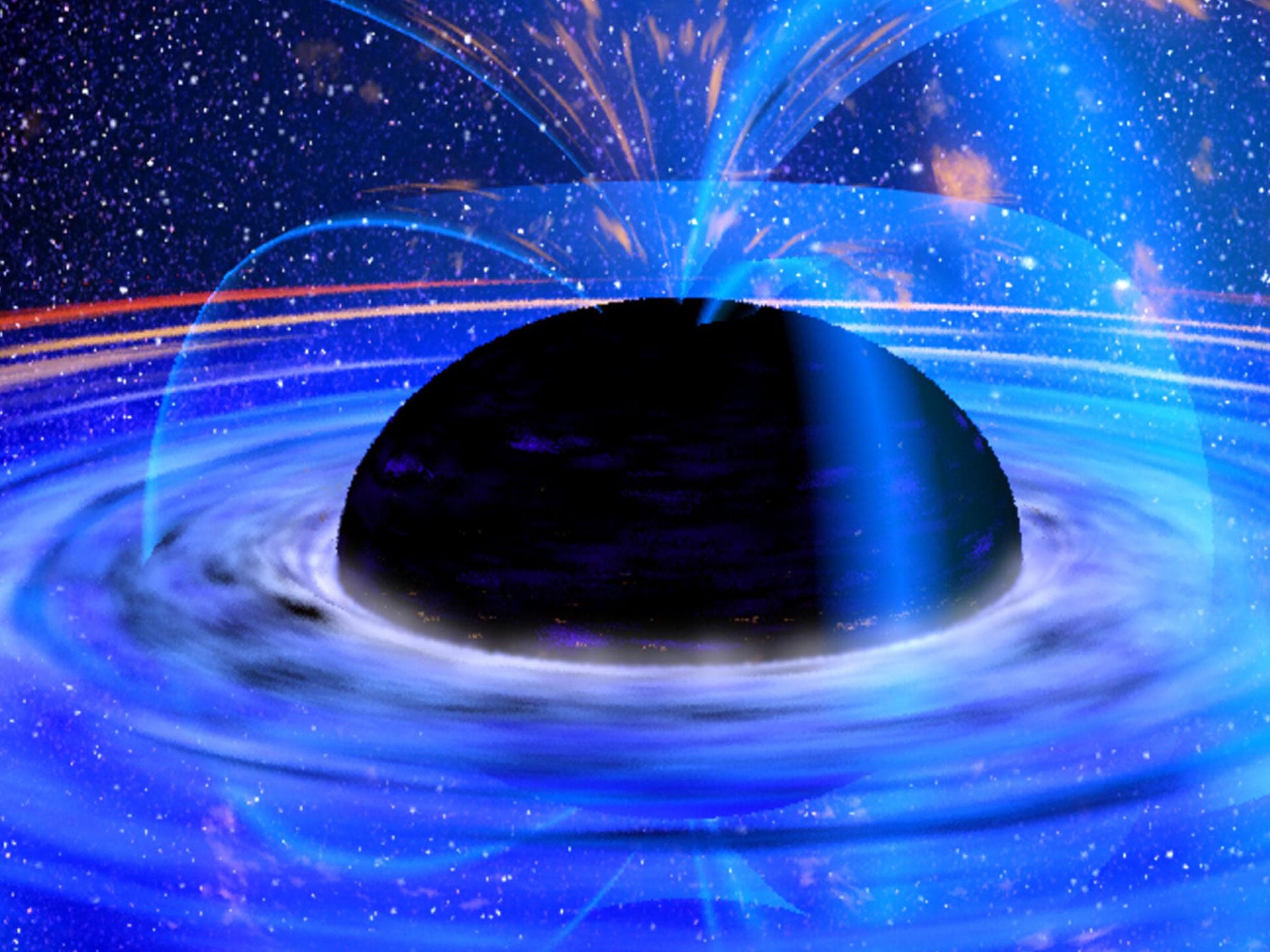'Hairs' on black holes could contain information about the universe's history, new Stephen Hawking study claims
Rather than being featureless blobs in space, the new theory suggests black holes are fringed by 'hairs' that could be a rich source of information

Your support helps us to tell the story
From reproductive rights to climate change to Big Tech, The Independent is on the ground when the story is developing. Whether it's investigating the financials of Elon Musk's pro-Trump PAC or producing our latest documentary, 'The A Word', which shines a light on the American women fighting for reproductive rights, we know how important it is to parse out the facts from the messaging.
At such a critical moment in US history, we need reporters on the ground. Your donation allows us to keep sending journalists to speak to both sides of the story.
The Independent is trusted by Americans across the entire political spectrum. And unlike many other quality news outlets, we choose not to lock Americans out of our reporting and analysis with paywalls. We believe quality journalism should be available to everyone, paid for by those who can afford it.
Your support makes all the difference.A new theory on black holes, developed by famed physicist Stephen Hawking, could provide a method to discovering the origins of the universe.
The paper theorises that black holes, once thought to be huge, featureless blobs in spacetime, could have 'hairs' that contain information about the holes' pasts, potentially solving the long-standing 'information problem' of the fate of matter that falls into a black hole.
Black holes, as explained by Einstein's theory of general relativity, are celestial bodies that are so dense that their strong gravitational pulls prevent anything, including light, from escaping them.
For a long time, it was thought that black holes were essentially all identical apart from variations in their spin, angular momentum and mass. Any attempt to find out a black hole's origin would fail, since they contained no unique information.
In the 1970s, Hawking developed a theory that black holes, despite their huge mass, did 'leak' particles over time - a phenomenon that was named Hawking radiation.
Over the course of millions of years, leaking Hawking radiation causes black holes to 'evaporate', leaving a vacuum. But since the original theories on black holes stated they were all identical, these vacuums would be too - meaning they would hold no information about the hole's origin.
However, Hawking's new theory, developed with Cambridge university colleague Malcolm Perry and Harvard physicist Andrew Strominger, could throw that idea into doubt.
By introducting a photon with no light or energy - a 'soft photon' - into one of these vacuums, you change its angular momentum, the theory claims.
This would mean that rather than being identical, the vacuums left by evaporated black holes are unique, with their properties depending on their origins and history.
It also suggests that black holes are fringed by 'hairs' - strands of energy-free particles which can carry information.
As Strominger explained to Live Science: "Far from being a simple, vanilla object, it's like a large hard drive which can store essentially an infinite amount of information in the form of these zero-energy photons and gravitons."
If true, this new theory means black holes could hold huge amounts of information about the universe's history. If we were somehow able to observe black holes accurately enough, we may be able to use these hairs to discover this information.
This theory could be step towards discovering what happens to information that falls into a black hole. Currently, the method for decoding the information theoretically held in black holes is unknown, but as physics progresses, we might get there one day.
Subscribe to Independent Premium to bookmark this article
Want to bookmark your favourite articles and stories to read or reference later? Start your Independent Premium subscription today.
Join our commenting forum
Join thought-provoking conversations, follow other Independent readers and see their replies
Comments